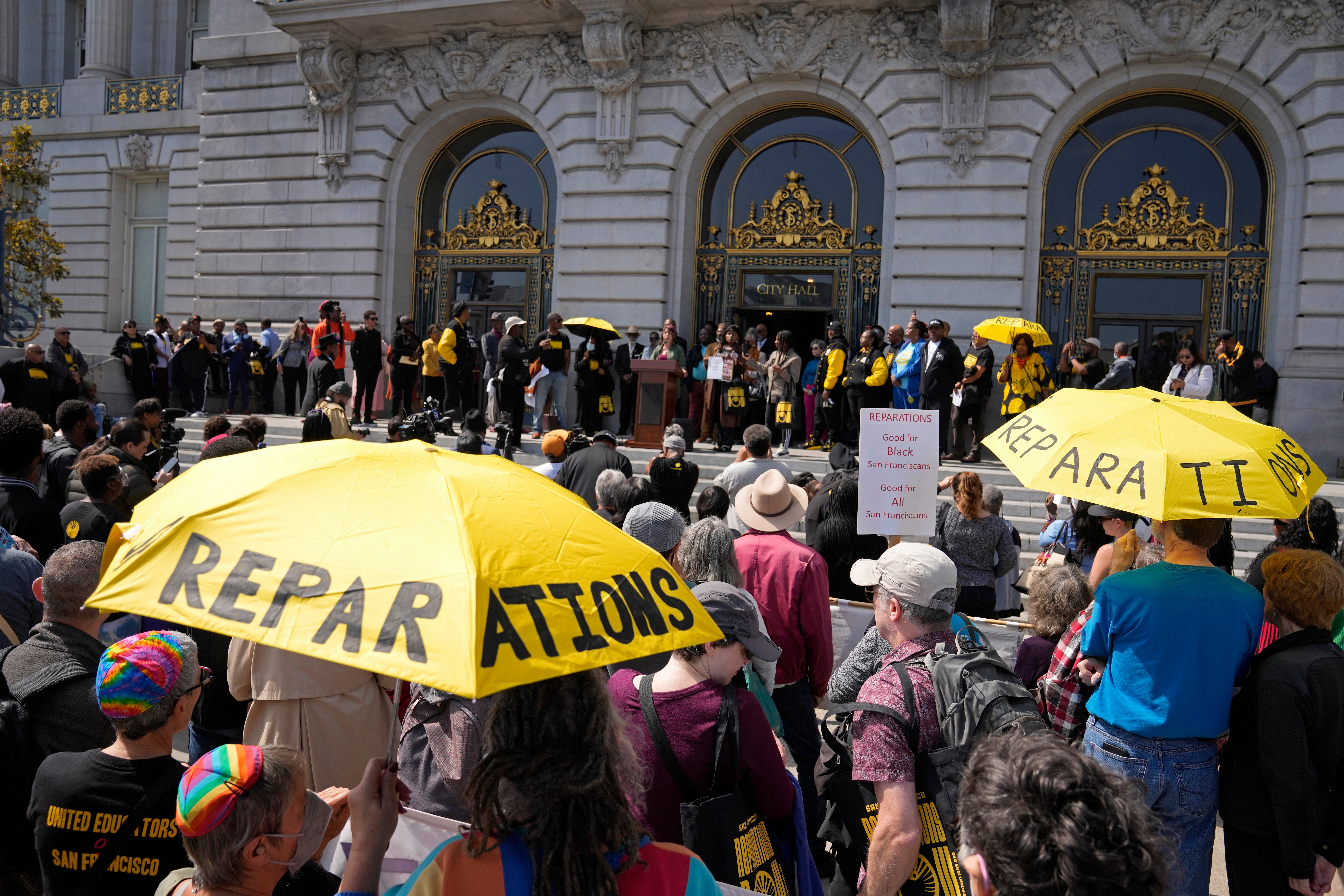California to apologize for state's legacy of racism against Black Americans under new law
California Gov. Gavin Newsom has signed new laws that seek to offer repair for decades of policies that drove racial disparities for African Americans

California will formally apologize for slavery and its lingering effects on Black Americans in the state under a new law Gov. Gavin Newsom signed Thursday.
The legislation was part of a package of reparations bills introduced this year that seek to offer repair for decades of policies that drove racial disparities for African Americans. Newsom also approved laws to improve protections against hair discrimination for athletes and increase oversight over the banning of books in state prisons.
“The State of California accepts responsibility for the role we played in promoting, facilitating, and permitting the institution of slavery, as well as its enduring legacy of persistent racial disparities,” the Democratic governor said in a statement. “Building on decades of work, California is now taking another important step forward in recognizing the grave injustices of the past –- and making amends for the harms caused.”
Newsom signed the bills after vetoing a proposal Wednesday that would have helped Black families reclaim or be compensated for property that was unjustly seized by the government through eminent domain. The bill by itself would not have been able to take full effect because lawmakers blocked another bill to create a reparations agency that would have reviewed claims.
Efforts to study reparations at the federal level have stalled in Congress for decades. Illinois and New York state passed laws in recent years creating reparations commissions. Local officials in Boston and New York City have voted to create task forces studying reparations. Evanston, Illinois, launched a program to provide housing assistance to Black residents to help atone for past discrimination.
California has moved further along on the issue than any other state. But state lawmakers did not introduce legislation this year to give widespread direct payments to African Americans, which frustrated some reparations advocates.
Newsom approved a $297.9 billion budget in June that included up to $12 million for reparations legislation that became law.
He already signed laws included in the reparations package aimed at improving outcomes for students of color in K-12 career education programs. Another proposal the Black caucus backed this year that would ban forced labor as a punishment for crime in the state constitution will be on the ballot in November.
State Assemblymember Isaac Bryan, a Democrat representing Culver City, called legislation he authored to increase oversight over books banned in state prisons “a first step” to fix a “shadowy” process in which the Department of Corrections and Rehabilitation decides which books to ban.
The corrections department maintains a list of disapproved publications it bans after determining the content could pose a security threat, includes obscene material or otherwise violates department rules.
The new law authorizes the Office of the Inspector General, which oversees the state prison system, to review works on the list and evaluate the department's reasoning for banning them. It requires the agency to notify the office of any changes made to the list, and it makes the office post the list on its website.
“We need transparency in this process,” Bryan said. “We need to know what books are banned, and we need a mechanism for removing books off of that list.”
___
Sophie Austin is a corps member for The Associated Press/Report for America Statehouse News Initiative. Report for America is a nonprofit national service program that places journalists in local newsrooms to report on undercovered issues. Follow Austin on X: @sophieadanna
Bookmark popover
Removed from bookmarks